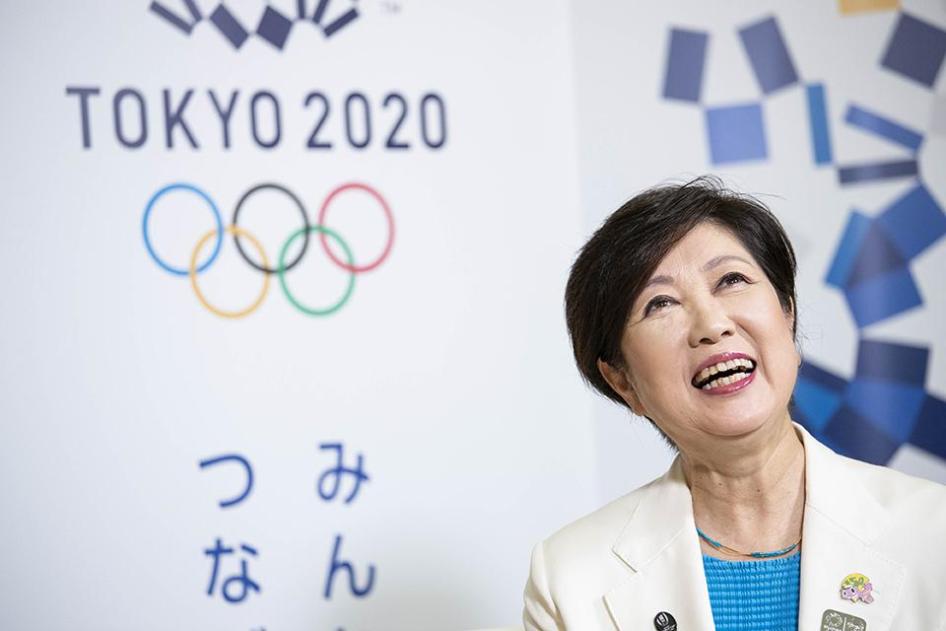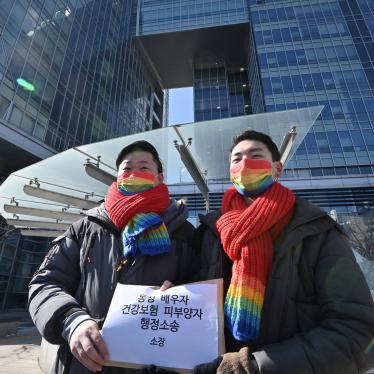Last week Tokyo’s municipal government passed a bill that prohibits discrimination against lesbian, gay, bisexual, and transgender (LGBT) people. In doing so, the city not only demonstrated its commitment to equal rights for all, but also to making the 2020 Tokyo Summer Olympic Games a springboard for human rights in Japan and beyond.
The new law states that the city government, citizens, and enterprises “may not unduly discriminate on the basis of gender identity or sexual orientation.” It requires the government to “conduct measures needed to make sure human-rights values are rooted in all corners of the city and diversity is respected in the city.”
Japan has twice voted for United Nations resolutions to end violence and discrimination against LGBT people. However, this law took its inspiration not from international human-rights treaties, but rather from the Olympic Charter. As the law reads: “This act upholds the goal of the Tokyo Metropolitan Government to make Tokyo a city that upholds the human-rights values of banning any sort of discrimination as stated in the Olympic Charter.”
Elsewhere around the world, the Olympics have driven some changes in how governments hosting the Games act on LGBT rights issues. This has in part been a rebuke to Russia for the 2014 Sochi Winter Olympics. The Russian government’s passage of the discriminatory “gay propaganda” law marred the Games, along with other human-rights violations such as forced evictions, abuses against migrant workers, and media censorship.
In December 2014, as part of its “Olympic Agenda 2020,” the International Olympic Committee confirmed that all future host-city contracts would include a requirement specifically banning discrimination on the basis of sexual orientation. The Tokyo Metropolitan Government went even further, though, by including gender-identity protections.
The Tokyo law can be added to a growing list of local and national measures that recognize and protect LGBT people in Japan.
At least seven local governments across the country now offer certificates to recognize same-sex couples – even though there is no marriage equality at a national level.
Nationally, the Education Ministry issued a “Guidebook for Teachers” in 2016 that outlines how to treat LGBT students in schools. In March 2017, the ministry announced it had revised the national bullying-prevention policy to include LGBT students. An increasing number of schools are allowing LGBT students to select their own uniforms so that they’re not compelled to wear a girl’s or boy’s uniform.
Internationally, Japan, along with the United States and the Netherlands, led a UNESCO conference in 2016 on bullying of LGBT students. Japan has voted for two UN resolutions to end violence and discrimination on the basis of sexual orientation and gender identity.
Despite these promising steps, Japan still has no national legislation protecting LGBT people from discrimination and does not grant legal recognition to same-sex couples. It also labels transgender people who request legal recognition as having a “Gender Identity Disorder” and leaves them with no alternative but to undergo unnecessary and invasive medical procedures to secure official documents that reflect their gender identity.
The Tokyo city law is important recognition that the Olympic Charter stands for inclusiveness and respect. It’s a template for the national government to demonstrate the Olympic spirit by taking its own steps to revoke discriminatory laws and policies, and enact protective ones.








